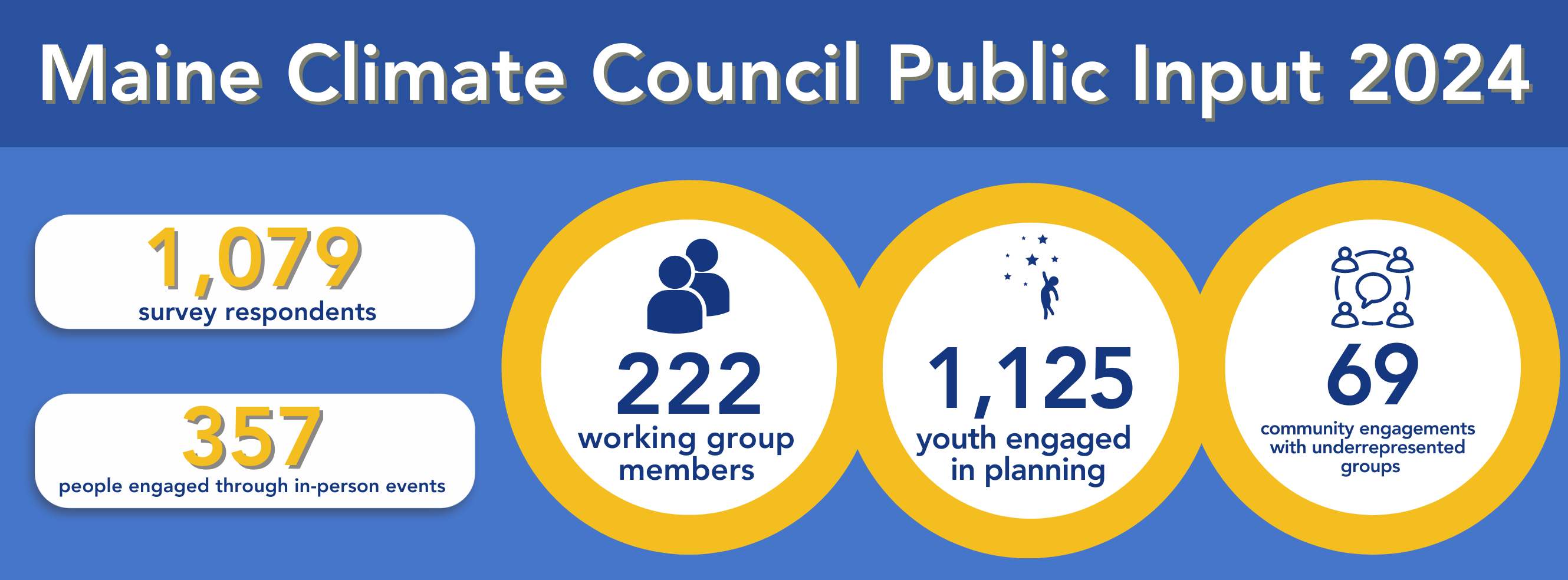2024 Draft Recommendations
Draft climate recommendations from the Maine Climate Council.
About this process
By law, the Maine Climate Council is working to deliver an update to Maine Won't Wait, the state's four-year climate action plan, by Dec. 1, 2024. Shaping that report will be the perspectives and feedback that Maine people have shared with the Council through a comprehensive process that began in September 2023. Everyday Mainers from across the state provided their thoughts and questions at in-person meetings, community events, youth engagement sessions, and through online surveys as the Council embarked on this important update.
The draft report
A portion of the report containing the Council’s draft strategies is available here. Any remaining public comments should be submitted by 5 p.m. on October 22, 2024. The draft strategies will then be finalized and incorporated into the full report.
Please subscribe to our newsletter, or follow us on Facebook or Instagram, to be notified when the full report is released. Thank you for your partnership in this important work.
Maine Climate Council Resources
- 2024 Draft Strategies (Archived)
- Climate Council Website
- Climate Council Meeting Calendar
- Maine Won't Wait (PDF)
- 2024 Scientific Assessment of Climate Change and Its Effects in Maine (Executive Summary) (Full PDF)
- Maine.gov/ClimatePlan
- Subscribe to the Climate Newsletter
- Climate & Me: Climate Change and Maine Youth
